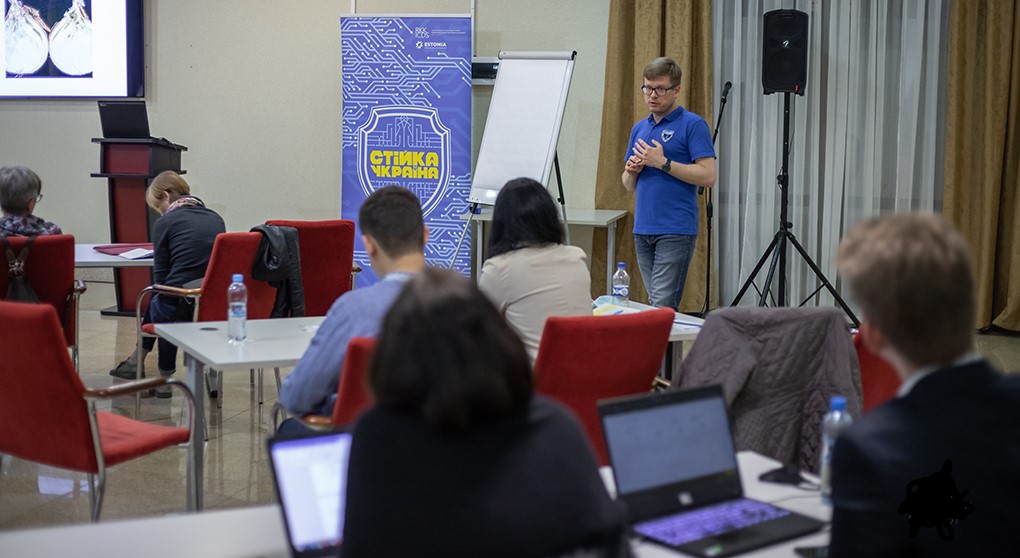Workshops with civil society organisations, scientists and international experts took place within the international seminar on resilience and security held during 20-21 May

These days in Sumy (Ukraine) were marked with panel discussions on resilience with regard to society, psychology, legislation, cybersecurity and many other related matters
In particular, several models of national resilience were described, namely models of Great Britain, the Netherlands, New Zealand and Ukraine.
“Countries’ experience in the matter is different and a choice of a model of ensuring national resilience depends on state’s needs, its membership in certain international organisations, alliances. For instance, NATO member states orientate themselves towards recommendations on resilience developed by the Alliance”, indicated Olga Reznikova, Head of the Strategic Planning Research Department within the National Institute for Strategic Studies (NISS).
The issue of multinational aspects and approaches towards resilience, including NATO as an example, brought considerable attention. During a discussion of the given issue Tomas Jermalavicius, Head of Studies of the International Center for Defence and Security (ICDS), mainstreamed 7 basic requirements for national resilience, particularly public services, energy issues, migration processes, etc.
“NATO also sets its emphasis on infrastructure, civil preparedness, continuity of services, accumulation of reserves and ensuring access to them as well as on various procedures facilitating rapid crisis response”, the researcher said.
Serhii Dembitskyi, PhD in sociology, senior research fellow of the Institute of Sociology of the National Academy of Science of Ukraine, provided analysis of sociological domain of national resilience in his report by setting out main threats to resilience and Ukrainians’ attitude towards them. Resilience indicators proposed in his report have specifically set priority spheres of strengthening resilience.
“The level of anomie remains high in Ukraine. That is, disillusion that there are certain norms which enable to act together to solve common problems. It prevails for absolute majority of population. And geopolitical orientations differentiate us, instead”, believes the sociologist.
A relevant report on psychological aspects and realms of national resilience, especially those associated with COVID-19 pandemic, was presented by Oleh Pokalchuk, social and military psychologist. Constructive and destructive results of propaganda during the pandemics were highlighted.
“Adversary’s propaganda always uses weak spots in social groups — ideological divisions, cultural differences, and transforms them into conflictogenous, crisis ones”, - believes Mr Pokalchuk. According to participants of the panel discussion, a state’s way from resistance to resilience and reinterpretation of resilience in positive dimension are an important element.
Experts also believe that communication and media are important in the context of resilience. The latter is seen as an efficient instrument of enhancing national resilience. However, in certain occasions media plays an expressly destructive function in the process of elaborating resilience. An important issue for discussion concerned online disinformation, raised by Renata Matkeviciene and her colleague Dalia Bankauskaite from Lithuania.
Primary attention of expert community was focused on cybersecurity as a building block in a system of national security and resilience.
“There is no peace in information space – there is only permanent struggle”,- indicated CPT Andrus Padar, Commander of the Estonian Cyber Defence League.
Ksenia Iliuk, Program Manager at Detector Media and Analyst of “Resilient Ukraine” Programme, presented analytical insights of the Programme’s research team. In particular, Ms. Iliuk spoke about the complexity of the resilience of the concept and presented indicators for quantitative measurement of society’s resilience. The researcher explains: "Resilience is complex. That is, by its very nature the concept of resilience has many layers, dimensions and is applicable for almost every aspect of our life – psychology, ecology, physics and many others. It cannot be simplified and limited to one formula because contemporary threats are hybrid ones. That is why we should respond to them in a holistic and multidimensional manner". The Resilient Ukraine team during the first stage of its activities has identified over 150 indicators of resilience and continues to work in this direction to form comprehensive system of measuring society’s resilience to information, communication and cognitive threats.
Participants’ practical skills and abilities during panel discussions were reinforced in the course of a simulation game with the use of interdisciplinary scenarios of strengthening resilience presented by Director of the International Center for Security Valerii Kravchenko. “Resilience is not only an ability of a state to recover after losses, for example, with regard to critical infrastructure but also a societal resilience”, the speaker believes.
Resilient Ukraine Programme continues to develop tools for measuring and enhancing resilience. Programme Director Dmitri Teperik summarised: “Measurable and not declarative level of our individual and collective preparedness to crisis situations will be one of decisive factors for testing resilience at local, regional as well as at national levels”.
